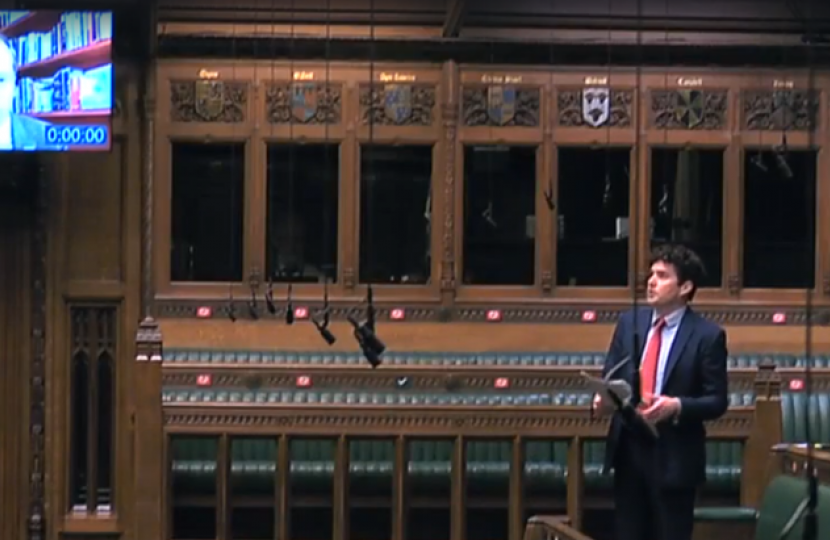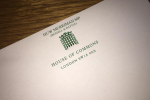
Whilst I’m confident we will deliver for the first priority groups by mid-February, we are experiencing a patchy delivery across rural parts. Some GPs in smaller towns have been vaccinating whereas others residents living in similar-sized populations nearby have nothing on their doorstep and are still waiting. In rural areas, we are well versed with waiting but this isn’t a bus service; it’s a life-saving vaccine and there should not be a postcode lottery as to availability.
When I hold a concern, I tend to make sure my own Government are in a position to know about it. Today, I successfully applied to ask an Urgent Question which was ‘to ask the Secretary of State for Health to give a statement on the COVID19 Vaccination Rollout’.
Huw Merriman
"Mr Speaker, thank you very much for granting this urgent question. I also thank the Secretary of State for his update and for all the time and devotion he gives to this matter, and the vaccines Minister, my hon. Friend the Member for Stratford-on-Avon (Nadhim Zahawi), who is doing an amazing job. Everyone is doing an amazing job across the country to roll out this vaccine, and I absolutely salute them all. They include my Westminster office manager, Iona Cullen-Stephenson, who has been vaccinating.
In my part of rural East Sussex, the vaccine has been slow to reach rural Rother, Battle and Heathfield residents. In the 200 square miles that I represent, only one surgery has been vaccinating. That has got better from this week, and I welcome that. I thank the Sussex Community NHS Foundation Trust team. Adam Doyle and his team have been amazing to MPs.
I have three question to the Secretary of State about rural areas. First, can we draw up a new vaccine contract for GPs that guarantees that they will receive only AstraZeneca, and not Pfizer, which they find difficult to store? Many GPs in my area tell me that they will sign the contract if they can get AstraZeneca only, so it would be just like the pharmacy contract.
Secondly, we will soon have the welcome challenge of delivering the vaccine to priority groups 5 to 9. At the same time, we will have to deliver the second dose to the priority 1 to 4 cohort, who are more vulnerable. Can we ensure that the latter priority groups go to the hubs, because those groups will find it easier to travel, and that we use our local GP surgeries to re-dose priority groups 1 to 4?
Thirdly, I know that the Government rely on the manufacturers for supplies, but can we try to give more forward-looking supply levels to our county teams so that they have indicative estimates to enable them to plan better on the ground?
I welcome the statement from the Government. I would ask that colleagues be given an opportunity every week to question members of the Government. We receive updates from our own community teams, and it is surely right that we should be able to put the same questions and ideas to the Front Benchers."
Mr Speaker
"Before I bring in the Secretary of State, I will just say that this is your UQ, rather than Government coming forward with a statement. We have had to ask for it."
Matt Hancock
"On that last point, we typically do come forward with a statement at least once a week, and I am very happy to answer questions at any time."
Mr Speaker
"Order. Can I just correct the Secretary of State? We have not had one for over a week."
Matt Hancock
"Typically, I have come forward at least once a week, and I am very happy to do that and to respond to questions at any time. I am very glad that the technology is working and I can do that while self-isolating at home, as I am now.
On the substance of the questions asked by my hon. Friend the Member for Bexhill and Battle (Huw Merriman), the first thing I would say is that I am absolutely delighted that there are new centres opening in Sussex—in Ticehurst village hall this week—so that the roll-out can reach all parts. I will consider the point that he makes about cohorts 5 to 9, which will need the first dose of the vaccine at the same point as we start the second dose for those who have been vaccinated from the start of January. When we restart with the second doses, it will be important to make sure that they are available as close as possible to the largely elderly population who will need them, and I will take away the point that he raises.
The challenge on the contract is tied in with the first and third of my hon. Friend’s questions. The challenge is essentially that we have a lumpy supply. The manufacturers are working incredibly hard to deliver the supply as fast as possible, and I pay tribute to them and their work. It is challenging, however, and therefore it is not possible to give certainty as far out as many
GPs and those who are delivering on the ground would like. The worst thing would be to give false certainty. We do try to give information about what is coming next week, but until the supply smooths out, as I am sure it will over time, going further out than that would give false certainty. The worst thing would be to have GPs across the country booking in large numbers of people and having to reschedule those appointments unnecessarily.
I will take into account the point that the Oxford-AstraZeneca vaccine is easier to deliver in rural areas, and the request for some people to be able to do that. At the moment, however, we must use the contract that we have."




